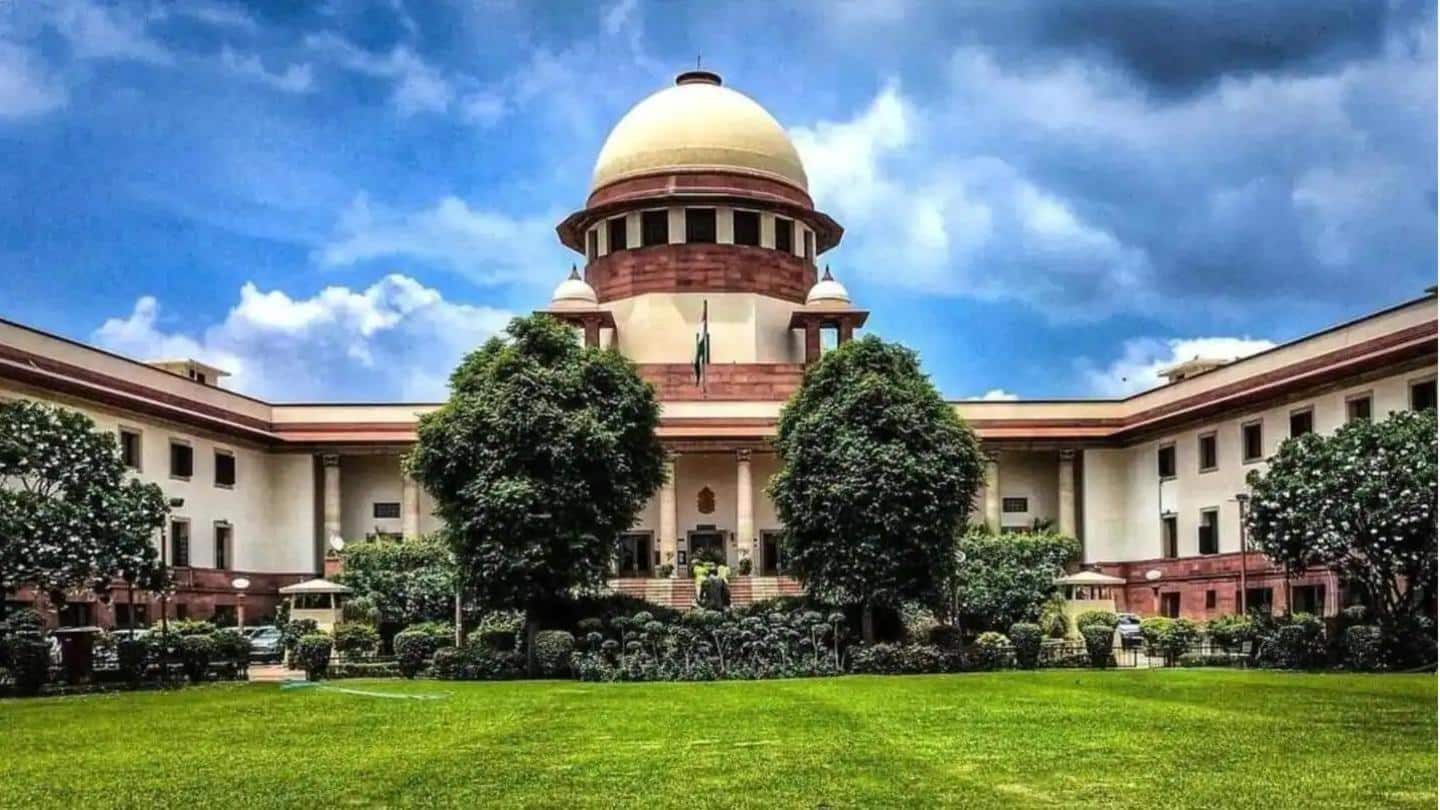
Sedition law: 'What about pending cases?' SC asks Centre
What's the story
The Supreme Court on Tuesday sought a response from the Centre on whether filing sedition cases in the future would be suspended until it reexamines IPC Section 124A.
This comes a day after the Centre submitted it would "reexamine and reconsider" 124A—commonly called the sedition law.
Appearing for the Centre, Solicitor General Tushar Mehta said he would apprise the bench of it on Wednesday.
Context
Why does this story matter?
The sedition law has been facing criticism with many raising concerns over the government misusing it against critics.
Many have also questioned the legality and constitutional validity of the British-era legislation.
Interestingly, between 2016 and 2019, the number of cases filed under Section 124A jumped 160% but the rate of conviction declined to 3%.
Response
SC seeks Centre's reply on protecting citizen's rights
An SC bench led by Chief Justice NV Ramana on Tuesday asserted they wanted instructions from the Centre on the matter.
It told Mehta, "We will give you time till tomorrow. Our specific queries are...about pending cases and...how the government will take care of future cases."
Seeking a reply, it also asked "if future cases can be kept at abeyance till reconsideration is over."
PM Modi's views
What did Home Ministry's affidavit to SC state?
In an affidavit to the SC on Monday, the Home Affairs Ministry reportedly said PM Narendra Modi has made it clear outdated colonial laws had no place in India.
PM Modi has "periodically...expressed his unequivocal views in favor of protection of civil liberties, respect of human rights, and giving meaning to the constitutionally cherished freedoms by the people of the country," it further said.
Previous stance
Centre last week defended sedition law
Earlier on Saturday, in another affidavit, the Centre upheld the sedition law's constitutional validity, citing the SC's 1962 Kedar Nath Singh judgment.
It said the law and the 1962 judgment have withstood the test of time and its misuse can never justify the need for reconsideration.
On Monday, however, it took a U-turn and informed the SC it had decided to review the law.
About
What exactly is sedition?
In popular parlance, sedition is assumed to be an anti-national act. However, in legal terms, sedition is an anti-government act.
It is not a different Act by Parliament but is part of the Indian Penal Code (IPC) Section 124A.
Notably, in 1870, British historian and politician Thomas Macaulay drafted Section 124A. Reportedly, however, the term "sedition" itself wasn't originally mentioned in this IPC Section.
History
Bal Gangadhar Tilak, Mahatma Gandhi convicted under this law
Interestingly, Bal Gangadhar Tilak was the first person to be convicted under the sedition law over his newspaper publications.
Mahatma Gandhi was also jailed under it for his writings in Young India.
Gandhi once termed 124A the "prince among the political sections of the IPC designed to suppress the citizen's liberty."
This IPC section became cognizable in 1973 when Indira Gandhi was in power.
Constitutional validity
SC's 1962 Kedarnath Singh vs State of Bihar case judgment
In 1953, Kedar Nath Singh—a Forward Communist Party member—had said at a Bihar rally: "The dogs of the CID are loitering around. We will strike...throw out these Congress goondas (hired criminals)."
Later, in 1962, the SC convicted Singh, upholding the constitutional validity of the sedition law.
However, it clarified criticism of the government cannot be labeled sedition unless accompanied by a call for violence.
Anarchy and chaos
Previous governments also defended sedition law
This is not the first time that the sedition law is facing legal challenges.
Despite criticism, previous governments have also defended the law. No government has actually tried to abolish the sedition law because it lets the government suppress anarchy and chaos.
Before Monday's U-turn, the Centre, too, had defended the British-era penal law on sedition in the Supreme Court the last week.
Dated law
SC earlier asked if this law was needed
In 2021, too, the top court asked if the law was "still necessary after 75 years of Independence".
It also noted that the law was a serious threat to the functioning of institutions.
The court had further asked why the Centre, which was taking a number of outdated laws off the statute book, was "not looking into this law."
Current matter
Petitions challenging sedition law
The apex court is considering a clutch of petitions challenging the validity of the sedition law.
These were filed separately by former army officer SG Vombatkere, the Editors Guild of India, Trinamool Congress MP Mahua Moitra, NGO PUCL, and a few journalists.
Earlier, the SC asserted its primary concern is the law's "misuse," which has led to a rise in sedition cases of late.